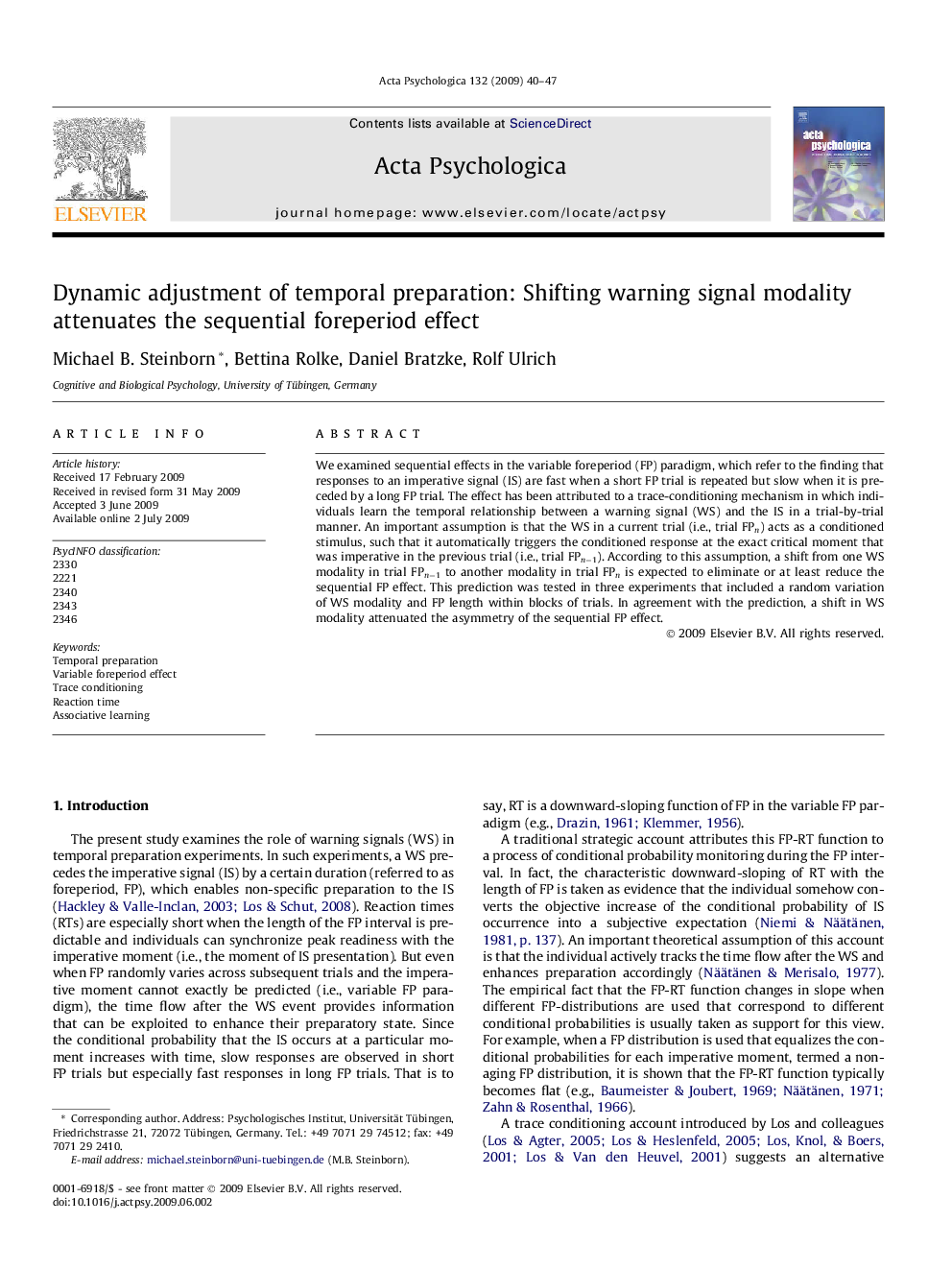| Article ID | Journal | Published Year | Pages | File Type |
|---|---|---|---|---|
| 920277 | Acta Psychologica | 2009 | 8 Pages |
We examined sequential effects in the variable foreperiod (FP) paradigm, which refer to the finding that responses to an imperative signal (IS) are fast when a short FP trial is repeated but slow when it is preceded by a long FP trial. The effect has been attributed to a trace-conditioning mechanism in which individuals learn the temporal relationship between a warning signal (WS) and the IS in a trial-by-trial manner. An important assumption is that the WS in a current trial (i.e., trial FPn) acts as a conditioned stimulus, such that it automatically triggers the conditioned response at the exact critical moment that was imperative in the previous trial (i.e., trial FPn−1). According to this assumption, a shift from one WS modality in trial FPn−1 to another modality in trial FPn is expected to eliminate or at least reduce the sequential FP effect. This prediction was tested in three experiments that included a random variation of WS modality and FP length within blocks of trials. In agreement with the prediction, a shift in WS modality attenuated the asymmetry of the sequential FP effect.
